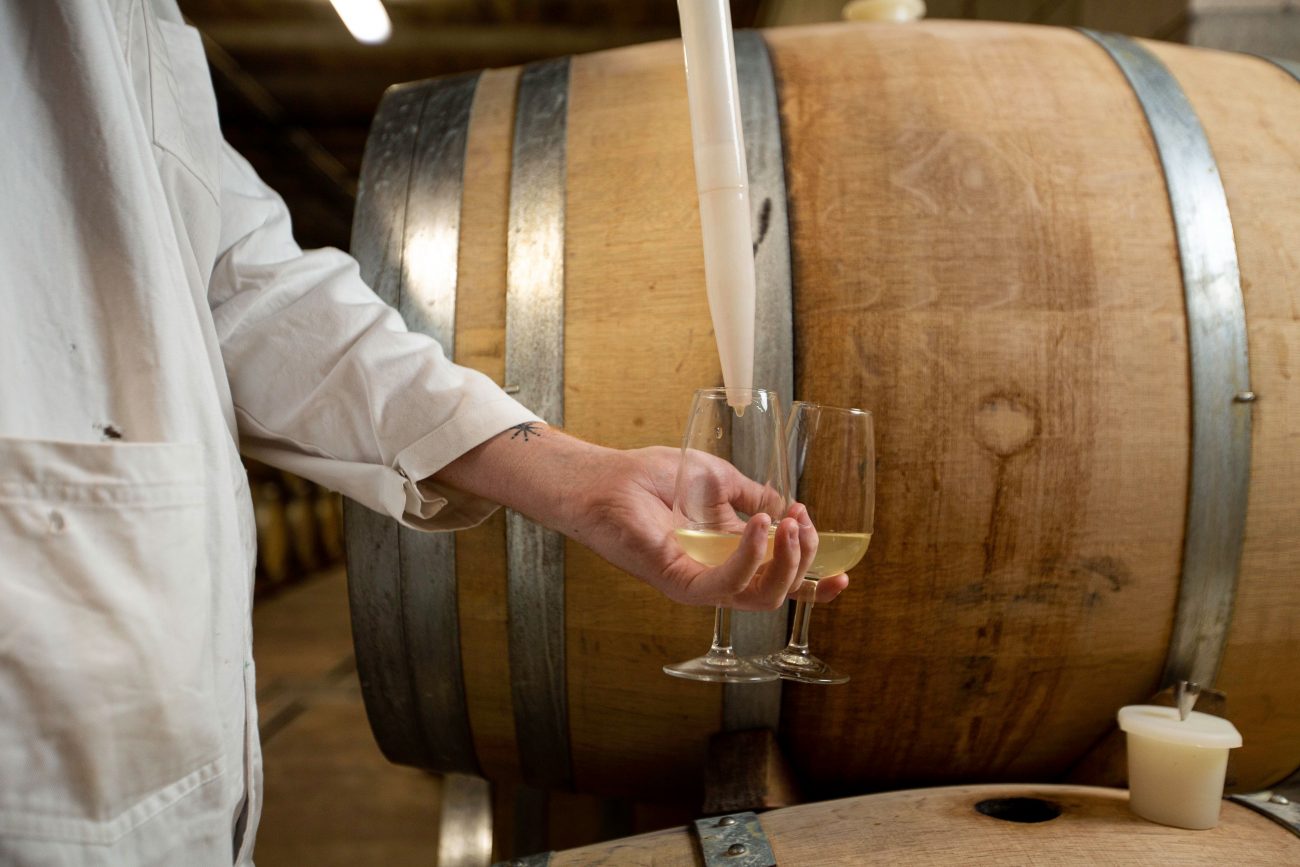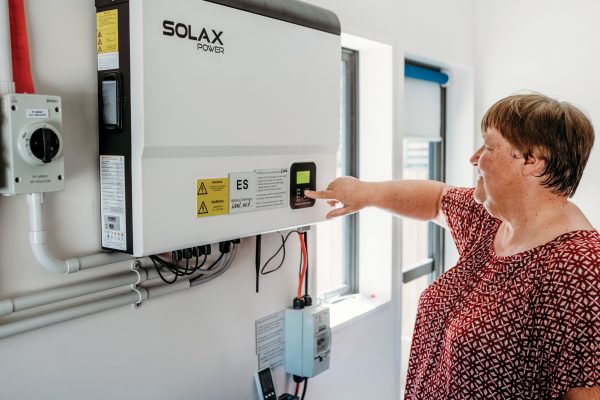A taste of science
Waiheke Island is a hotbed of experimental winemaking, but nowhere is this more evident than at the University of Auckland’s Goldwater Wine Science Centre.

Twenty kilometres from Auckland’s CBD, Waiheke Island is home to more than 20 vineyards and wineries, an extraordinary industry for an island that’s less than 100 square kilometres. The subtropical maritime climate and ancient soil structure are ideal for growing Bordeaux-style grapes, as well as chardonnay and sauvignon blanc varieties.
Sharing a vineyard with the university’s Goldie Estate, the Goldwater Wine Science Centre is home to the Master of Wine Science programme, a multidisciplinary postgraduate degree that prepares students for a career in New Zealand’s booming wine industry.
Dr Rebecca Deed, chemical scientist and lecturer on the MWineSci, says the facility allows students to take part in the entirety of the winemaking process. And the onsite homestead with accommodation for 10 students means that tastings are enthusiastic and hands-on.
“The students really see every part of winemaking, from starting with their own grapes that they harvest and taking it all the way through fermentation, they do all of the fining, the filtering, blending, trials—they get to see the whole process from beginning to end.”
“That contrasts well with some of the similar highly regarded international programmes because they quite often use frozen grapes rather than harvesting their own. We’re really strong in how we run things and because of the Goldwater Wine Science Centre being so integrated, it’s really great for the students.”
Deed, whose postgraduate research focused on the effects of sulfites in wine, says that the presence of even a nanogram of matter can change the quality of a batch. “For example, dimethyl sulfide creates an asparagus flavour in white wine, but in a red wine enhances the flavours and aromas.”
Winemakers, then, are looking to hire graduates with a strong background in science and the competency to manage such minute and subtle chemical reactions. Unlike the ‘Old Country’ winemaking nations in Europe, New Zealand is also at the cutting edge of wine science, says Deed. The lack of traditional practices means innovation is encouraged in a way that makes the industry a generator of tech- and science-based winemaking.
“We’re finding more and more that winemakers have strong science backgrounds. They’re really wanting to hire new graduates that have that scientific basis, because technology has been quite important especially in bigger wineries.
“There are various groups of winemakers into different things like organic wines, biodynamic winemakers, those that are chasing lower-alcohol wines, and that all requires scientific knowledge to be able to apply those new technologies either in the vineyard or on the winemaking side. A Master of Wine Science is almost becoming the norm.”
To find out more about the possibilities of a postgraduate science degree at the University of Auckland, visit science.auckland.ac.nz/pg


















